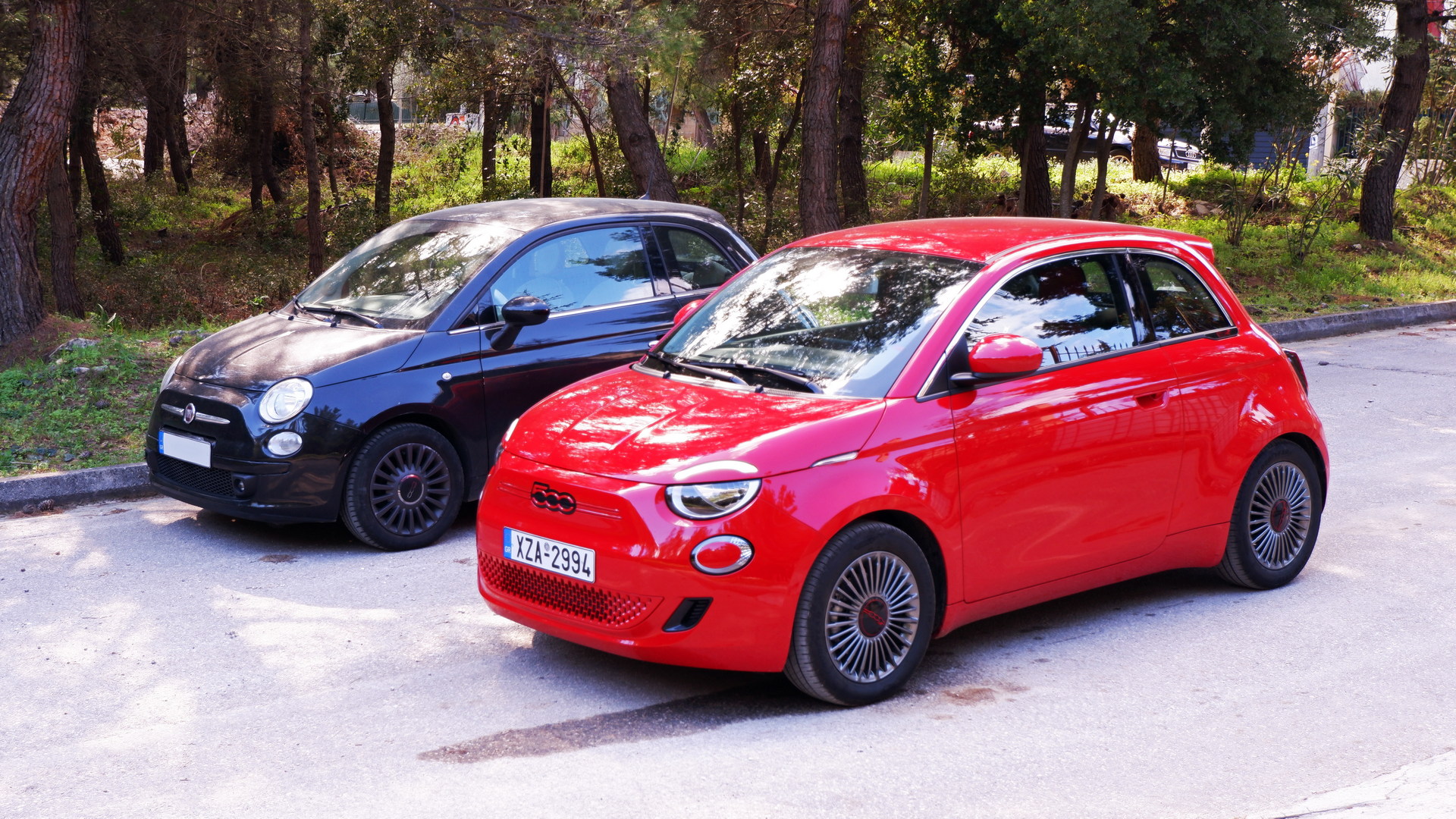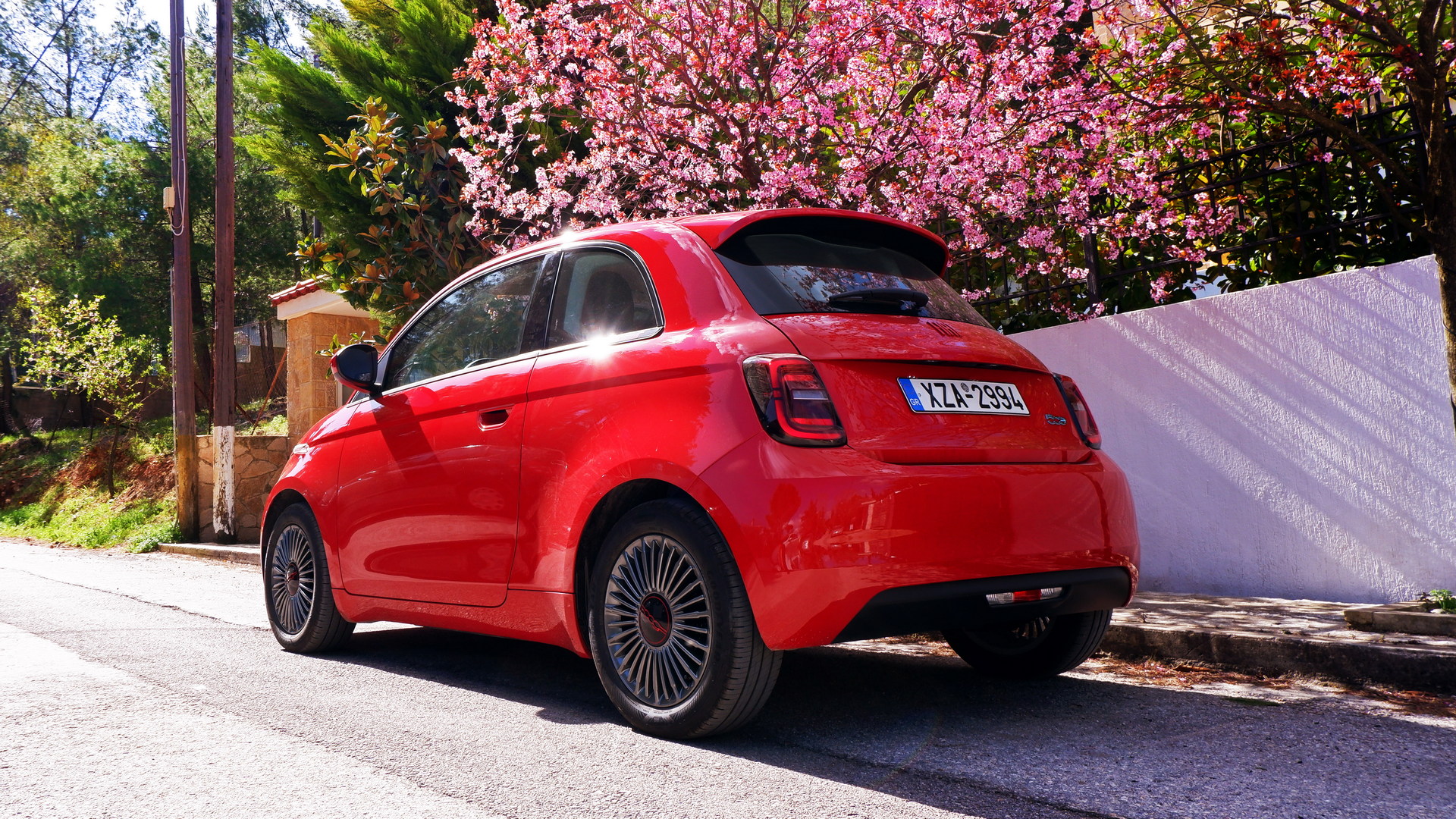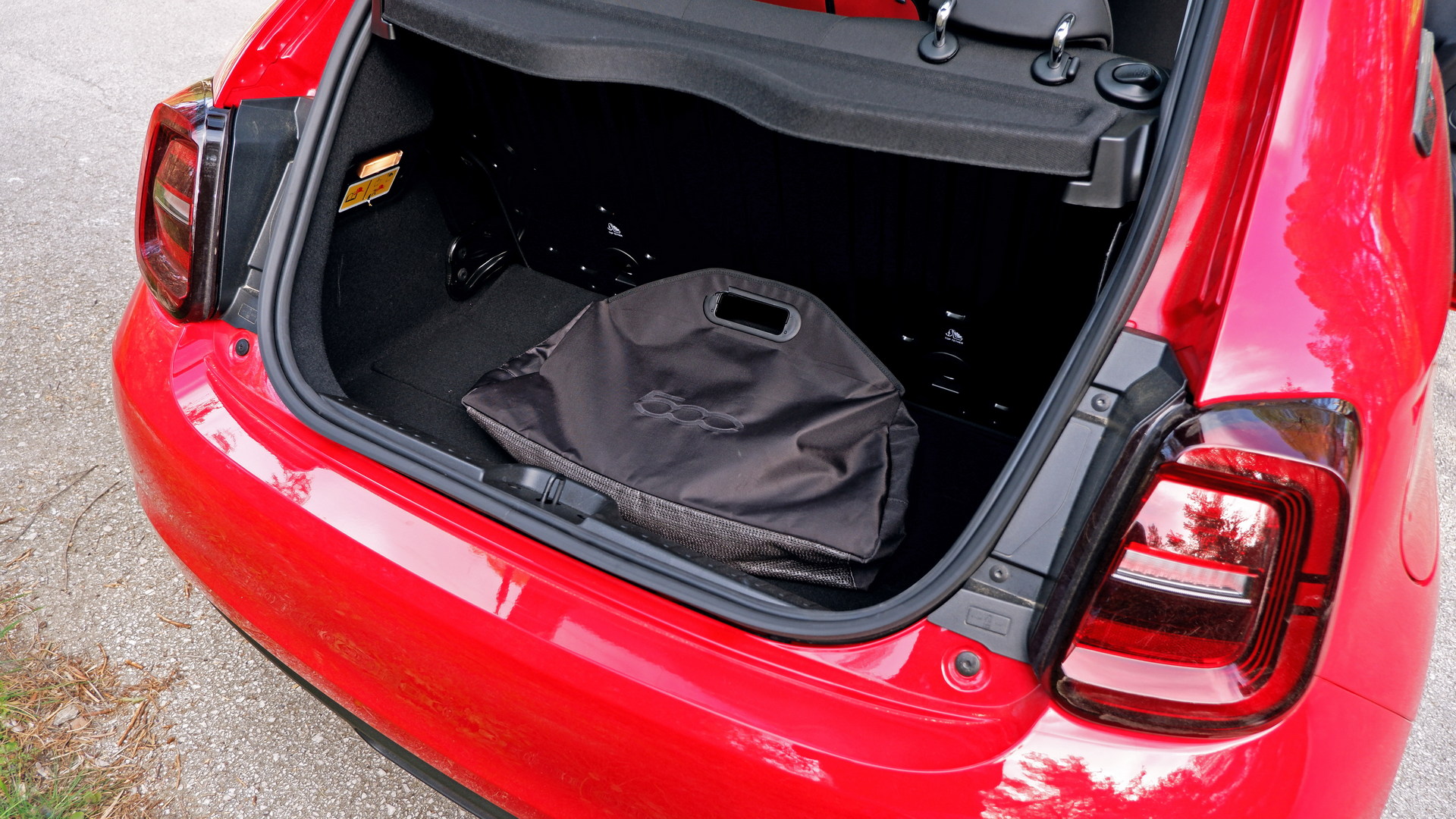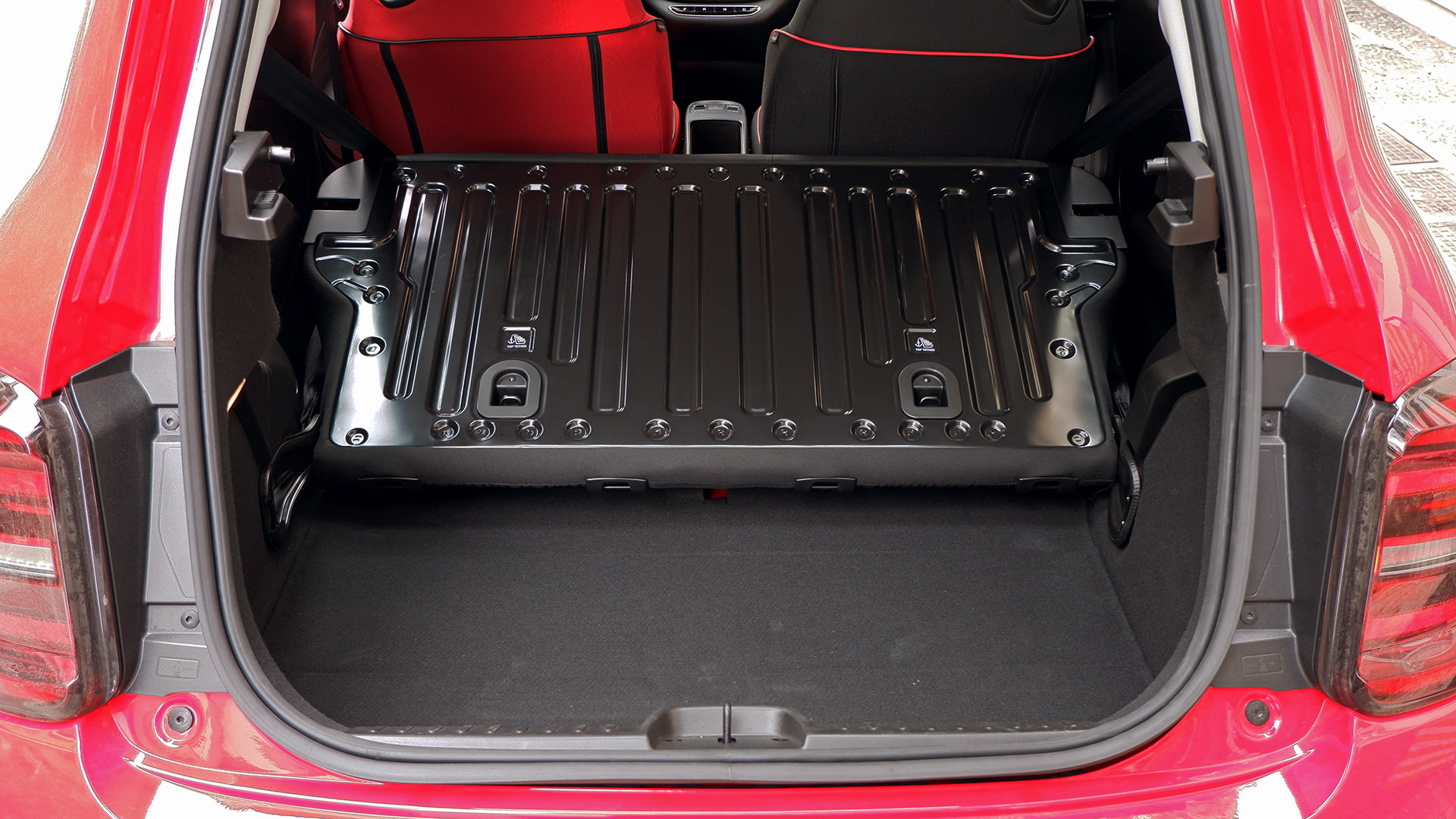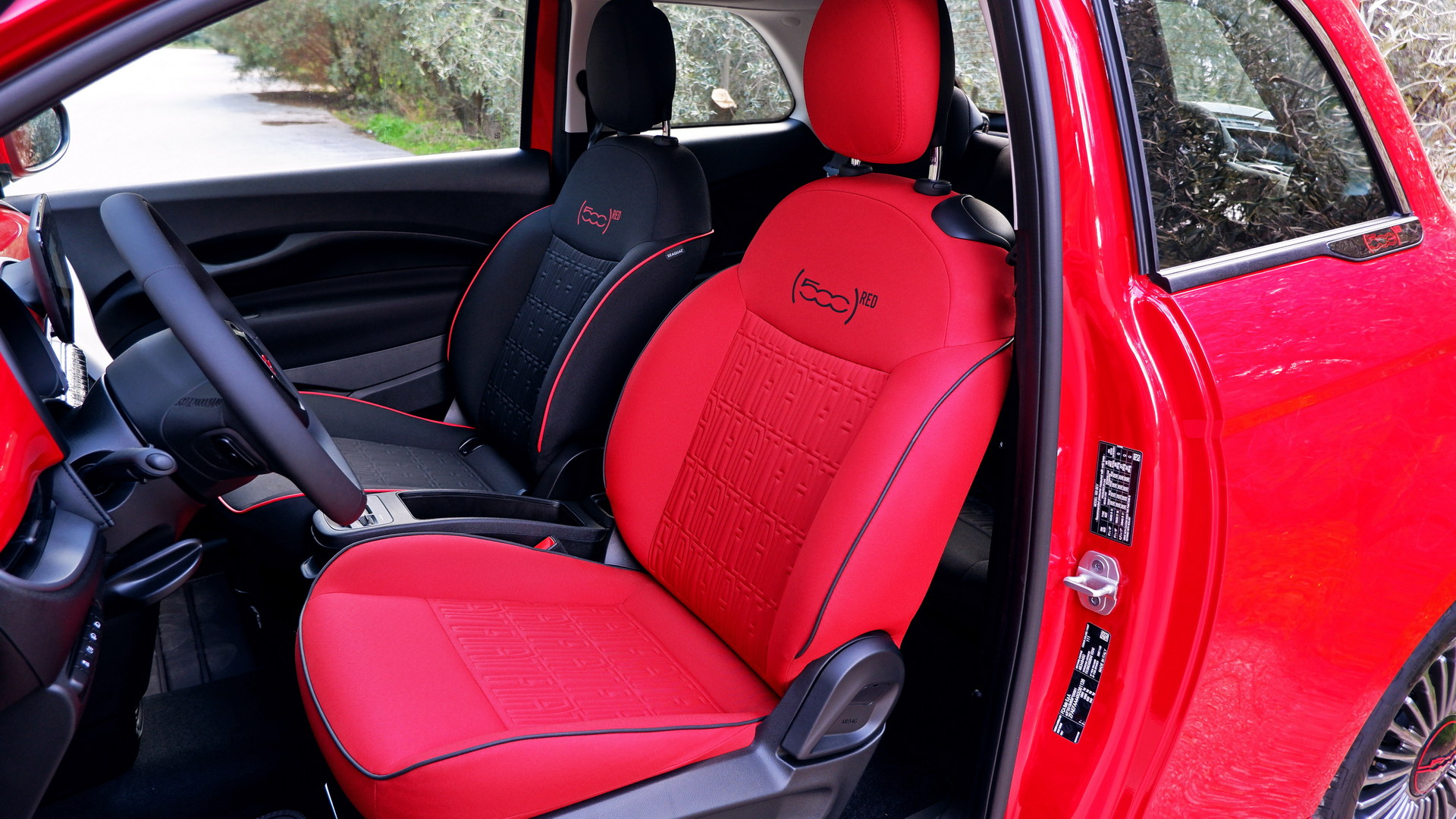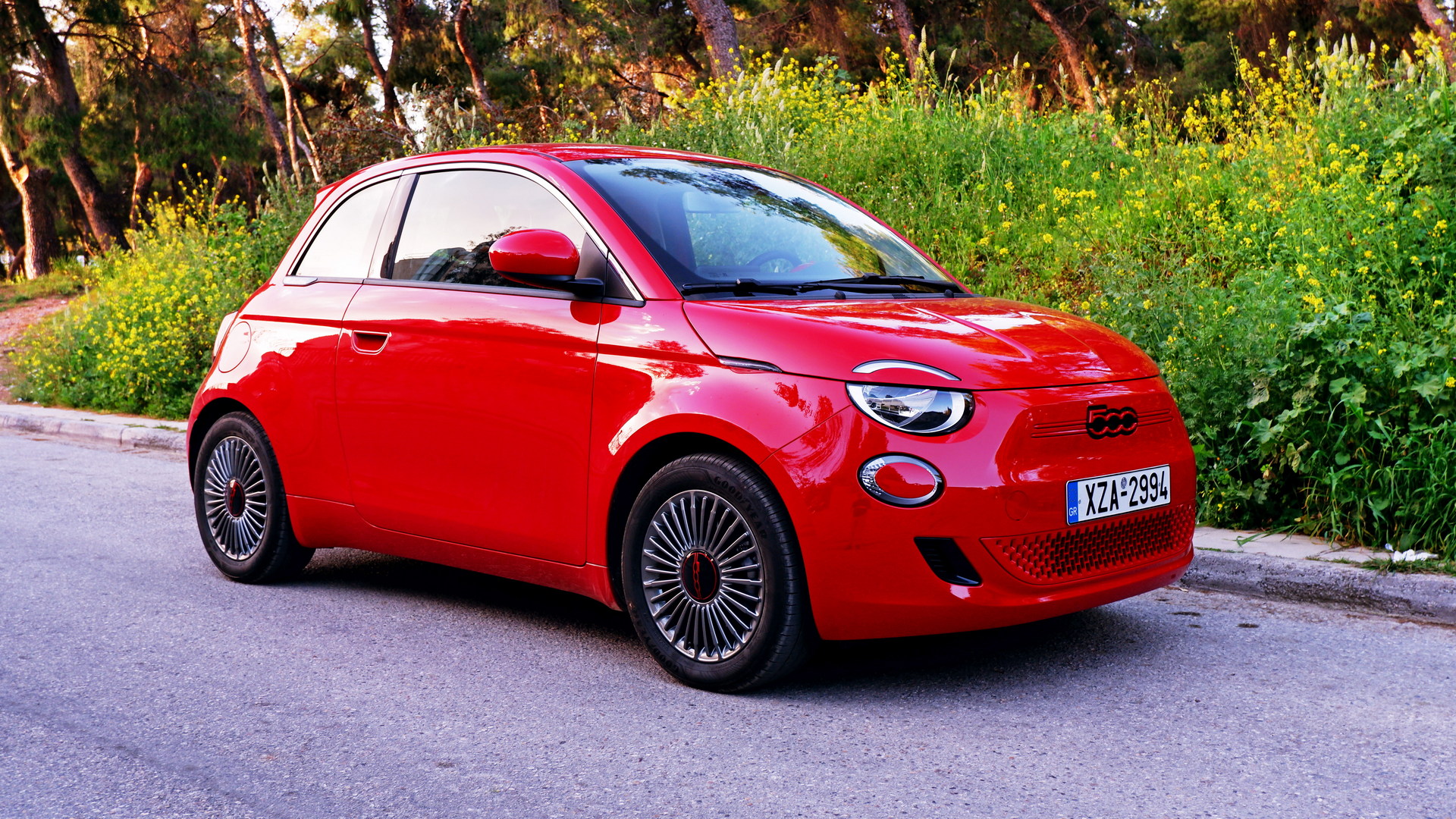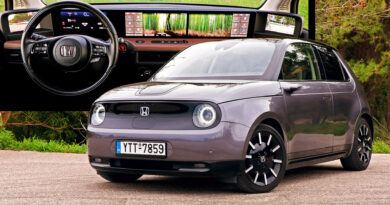Here’s What You Wanted To Know About The Fiat 500 RED EV
We recently drove the Fiat 500 RED and besides our full review, we decided to write another story where we answer all of our readers’ questions about this cute, retro-flavored urban EV from Italy.
Sethspost asked if you can still get an ICE-powered one without a battery
Starting with the basics, while the new 500 is exclusively offered in fully electric form, there is still the option of an ICE-powered 500. And by that, we mean the old generation first introduced back in 2007 with a facelift in 2016 and a mild-hybrid update in 2020. The mild-hybrid 1.0 FireFly three-cylinder engine producing 68 hp (51 kW / 69 PS) is the only option in Europe, while Japan gets the pure-ICE model with the old 1.2-litre four-cylinder engine.
Those who are interested in performance can also opt for the more powerful ICE-powered Abarth 595 and 695 range with the turbocharged 1.4-litre producing up to 177 hp (132 kW / 180 PS) in its latest evolution. Note that prospective buyers should hurry up because starting from 2024, Abarth will go EV-only with an already confirmed hot hatch version of the electric 500.
Read Also: Abarth Actively Working On Hot Hatch Variant Of The Electric Fiat 500
What is the real-life electric range?
When equipped with the 42 kWh battery, the Fiat 500 can easily provide you with a real-life range of 260 km (162 miles) in mixed driving scenarios. While this is lower than the advertised WLTP figure of 321 km (199 miles), it is higher than most of the rival urban EVs including the Honda e. The range is also pretty consistent in different driving styles, so you don’t have to worry too much about stepping on the accelerator every now and then. The “Range” driving mode will give you a few extra miles of range making one-pedal driving possible with maximum regenerative braking.
There is also an entry-level variant of the 500 fitted with a smaller 23.65 kWh battery and an advertised WLTP range of 190 km (118 miles). We haven’t tested that but from our experience, anything with that kind of range should be limited to the urban cycle.
Avtomad wonders if the remaining range on the trip computer is accurate
Thankfully, the trip computer of the 500 was one of the most accurate we have seen. Measuring the distance between our stops proved its consistency regardless of driving scenarios. Also, the numbers on the digital instrument cluster are slightly different in each of the three driving modes – Normal, Range, and Sherpa.
Carenthusiast wanted to know more about the second-row passenger room and luggage compartment, and Robotlogic asked about the headroom for tall people
The new 500 is still a small car with its style-focused shape and three-door bodystyle limiting its practicality. The driver and the front passenger have plenty of room and our only complaint is the non-height-adjustable driver’s seat in all trims except the flagship La Prima. This would be a nice feature for those who prefer a lower driving position despite the more than adequate headroom that is available in the front row.
In contrast, space for the rear passengers is quite limited for average-sized individuals and close to unusable for taller passengers. I am 6 feet (1.84 m) tall and weigh 74 kg (174 pounds), and as you can see from the picture I struggled to fit behind a similar-sized front passenger. My knees squeezed behind the seat, and my head was touching the roof. The only way for me to use the headrest was to open my legs wide which wasn’t comfortable and wouldn’t allow a second passenger in the back.
In the cabrio you can get unlimited headroom when the fabric roof is retracted, but the legroom remains too tight for adults. Having said that, my petite wife and early-teen cousin didn’t have any issue sitting at the back. Getting there from the front doors can also be a hurdle for some people but there is always the more practical 3+1 with an extra suicide door on one side making it easier to get in and out. To sum up, I wouldn’t recommend the rear seats for anything more than short trips if you are not a child.
The cargo space is 185 lt (6.4 cubic feet) which is enough for going to the supermarket or getting your friend from the airport as long as the suitcase is small. Due to the shape of car, the rear headrests are very close to the rear windshield, so for larger items, you have to fold them down. Predictably, in two-seater mode, the 500 has plenty of cargo space at the back.
Read Also: Here’s What You Wanted To Know About The Honda e
Starnight wondered if the red driver’s seat was an anomaly or an actual feature
Our Fiat 500 RED came with a red driver’s seat contrasting with the black passenger seats. This was not a wardrobe malfunction, but an optional personalization feature. Buyers can get a 500 RED with either black or red seats featuring contrasting piping and logos. Regardless of color, the seats are upholstered in sustainable Sequal Marine Plastic coming from recycled bottles. In the RED trim, the seats and touchpoints also feature a biocide substance that kills 99.9 per cent of the bacteria and viruses – including COVID-19.
Is road noise more pronounced in the electric 500?
Fiat engineers have done a great job in the transition to the electric era, making the new 500 more quiet than its ICE-powered predecessor. The great sound insulation in combination with the much improved ride quality and chassis setup bring the 500 closer to premium vehicle standards. The same applies on the highway when cruising at the 150 km/h (93 mph) top speed, with low levels of road noise and aerodynamic noise for the segment. The latter is more noticeable in the cabrio variant due to the fabric roof but you can still have a comfortable conversation with the front passenger.
So these were your questions on the 500 RED; if you want to learn more about it you can read our review here.
Source : Autonews.com


